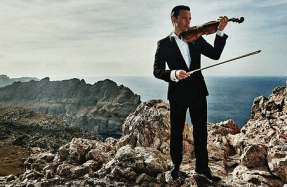
Beethoven
Piano Concertos Nos 3 & 4
Elisabeth Leonskaja (piano); Orchestre national du Capitole de Toulouse/Tugan Sokhiev
Warner Classics 5419726309 72:44 mins

One of the last surviving Russian-born pianists in the line of Richter and Gilels, Elisabeth Leonskaja has lately been recording solo and chamber music – so this new concerto album is welcome. While never making an ugly sound, her playing is weighty and forceful.
She voices Beethoven’s writing with total clarity and a natural sense of phrasing. Yet the Third Concerto’s humour and drama is underplayed: its first movement’s architecture is secure, but tempos verge on the deliberate: the central Largo feels as if it will never move beyond its opening chord, the flute/bassoon exchanges too strung out at this speed. The last movement is perfectly articulated, but its potential cheekiness doesn’t spring to life until the final pages.
In No. 4 there’s wisdom in her care in the opening exchanges, and her off-beat sforzandos later in that movement are impeccable. Her control is evident in the final notes of the central Andante con moto, the dissonant F sharp perfectly resolved onto E, and the finale races away with clear accents and vivid contrasts, well-matched by Tugan Sokhiev and his Toulouse orchestra. Nicholas Kenyon
Bruch • Tchaikovsky
Bruch: Scottish Fantasy
Kirill Troussov (violin); Lübeck Philharmonic/Christian Mandeal
Orchid Classics ORC 100224 26:23 mins
Tchaikovsky: Violin Concerto
Kirill Troussov (violin); Orchestra of Teatro Lirico Giuseppe Verdi




